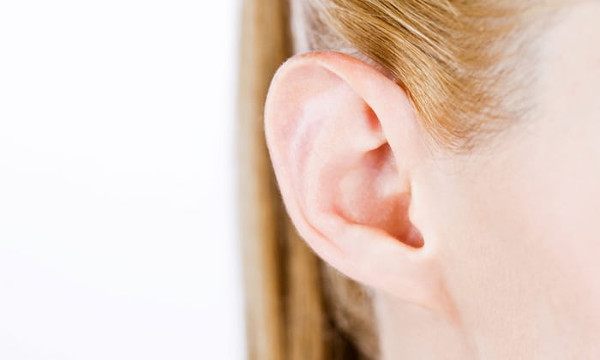Navigation

As a deaf student, I’m used to being excluded. Universities must do better.
What is it like being deaf at university? There’s no universal experience - but institutions need to do more to accommodate us
 The lecture had been going like any other, until I noticed that suddenly it was silent and everyone was staring at me.
The lecture had been going like any other, until I noticed that suddenly it was silent and everyone was staring at me.
“Why didn’t you answer my question?” asked the lecturer, with a smile to say he’d caught me out napping. I hadn’t even realised he’d asked a question. I awkwardly began to explain that I wasn’t being lazy. “I didn’t hear what you asked me,” I said apologetically. “I’m deaf.”
The professor looked taken aback, then made me move to the front row. It only made things worse: I felt as if I’d just been “outed” as deaf to a room full of people.

My degree couldn’t prepare me for the harsh realities of work in law
I’m encouraged to apply for internships - but internship supervisors turn me down. Photograph: Alamy
Read more |
My discomfort was a hangover from school. Being deaf in my comprehensive meant using a radio aid - a microphone linked to my hearing aid, which I gave to my teacher. But the receiver was black and bulky, and you had to wear it on your hip. I hated it. It was a permanent signal of what made me different to everyone else. But this was university and there was no radio aid - so why did I still feel self-conscious?
Walking out of the lecture, a friend told me that my coursemates hadn’t even realised I was deaf. I can’t blame them or my lecturer for being surprised - deaf people are relatively rare at university. The early setbacks don’t help: 59% of deaf children fail to get five good GCSEs, compared to 36% of their non-deaf counterparts.
I’m often reminded as a deaf student that we live in an audio world, in which deaf people regularly face social exclusion and loneliness. It can impact your day-to-day life in subtle ways: being told “it doesn’t matter” when you try to catch up on the conversation in the union bar, or finding out that your seminar room doesn’t have a hearing loop.
There is no universal deaf experience. But what unites us is that we’ve all experienced that exclusion to some extent. Zoë McWhinney, a third-year student at the University of Birmingham, identifies as being capital-D Deaf, meaning British Sign Language (BSL), not English, is her first language. “In a tutorial a professor asked me, through a BSL interpreter, why there were so few Deaf people like myself in the university,” she says. “I replied: ‘they treat BSL bilingual education like crap. It’s no wonder a lot of us struggle to get a place in high-ranking universities’. I remember feeling fantastic that someone had actually thought to ask that question.”
Being part of my university’s disabled students’ network has helped me, as has being friends with people who made me proud of my deaf identity and encouraged me to find the support I needed. As Max Barber, a Deaf student at the University of Greenwich, says: “The reality is that not everyone understands. But it is vital to make sure you are heard when asking for support - otherwise you miss out on the valuable education you paid for.”
But it’s not enough for universities to provide support only when asked. They have to become wholly inclusive places. There are several, practical ways to achieve this. Staff could be given deaf awareness training to make their lectures and seminars are accessible to all. Universities could also offer full BSL courses alongside languages they already offer, such as French or German.
Disabled students’ allowance cuts mean that non-medical helpers who many deaf students rely on, such as note-takers, have to be funded by the universities themselves. Those budgets must be protected so that no deaf student falls through the cracks.
Deaf students don’t just need to fight to make sure their voices are heard; universities have to make sure they’re listening. Maybe then revealing my deafness in a lecture wouldn’t be so embarrassing.
Get the support you need: my advice for deaf students
 It does matter
It does matter
If you miss something in a seminar, ask the person to repeat it. If they tell you “it doesn’t matter”, stand your ground: it’s up to you to be the judge of what matters, not them.
 Arrive to lectures early
Arrive to lectures early
If you rely on lip-reading to help you hear, arrive early enough to make sure you can sit somewhere with a clear view of the lecturer’s mouth. If someone is sat in a seat that you need, politely ask if you could sit there instead. They’ll most likely understand and it means the lecture won’t be wasted.
 Insist on the support you need
Insist on the support you need
When I first arrived at university, I made a list of all of the lecture theatres that didn’t have working hearing loops and asked for them to be fixed. Universities have a legal duty to make reasonable changes on the grounds of accessibility. Don’t feel embarrassed to ask for the support you need - you’re paying too much in tuition fees for your lectures and seminars to be inaccessible.
 Tell your lecturers if they’re not being deaf aware
Tell your lecturers if they’re not being deaf aware
If you declare your deafness, your university should let your tutors and lecturers know and they should take steps to help you. But sometimes lecturers forget. Tell them in person, either after a lecture or during their office hours, spelling out exactly what they need to do. They’re much more likely to remember small but significant changes - such as not covering their mouth or walking away from the microphone - once they can put a face to a name.
 Find other people like you
Find other people like you
It helps to know students who understand how frustrating it can be if something isn’t accessible. If you’re culturally Deaf, find out whether your university has a BSL society. If not, the students’ union could help you set up your own, or another university nearby might have an active club for you to join.